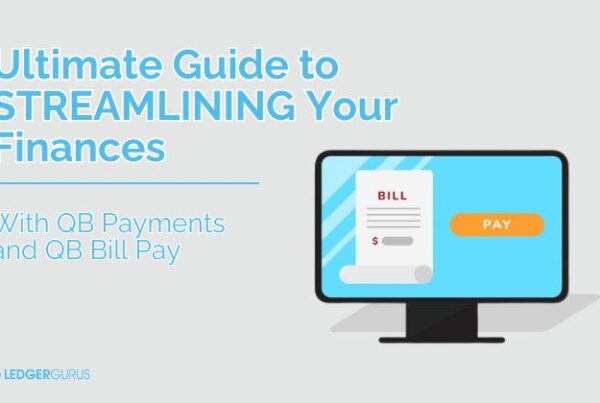![]()
Keeping receipts for business expenses can be a pain. In this article, we cover four key reasons why it’s important:
- Tax Justification
- Accounting Simplification
- Expense Approval
- Audit Readiness
In addition, we will mention some great tools in your efforts to scan and store receipts digitally. In today’s world, no one wants to have a huge filing cabinet full of business receipts! This can be avoided.
You can also view the information found in this article in our YouTube video.
Tax Justification
The IRS recommends keeping all sorts of documentation. If you were ever to receive a tax audit, the receipts tell the full story. Receipts have four pieces of important information:
- When the expense occurred
- The amount of the expense
- The vendor you paid
- What you purchased
Now, some people think that credit card or bank statements also tell the story. Unfortunately, these statements don’t necessarily tell you what you purchased. For example, if you purchased something from Walmart, you could have purchased anything from printer ink to a kid’s bicycle. In a tax audit, the “what” proves if the expense truly was tax deductible or not, and the receipts usually tell the “what”.
Accounting Simplification
You or your accountant may come across expenses that are unknown. And nobody wants to spend hours trying to figure out these unknown expenses. Keeping receipts readily available will give you the information you need in these situations, saving you or your accountant time.
Expense Approval
Businesses want to make sure employees are making appropriate purchases. Requiring employees to keep and submit receipts (whether for reimbursement or when using a corporate card) will hold them accountable and be easier to spot expenses that shouldn’t be approved. In addition, you can confirm reimbursement amounts.
Audit Readiness
In addition to tax audits, receipts are important for business audits. The supporting documentation of receipts proves that an expense on your financials (1) happened and (2) is accurately categorized.
Tools for Keeping Receipts for Business Expenses
There are three groups of apps that assist in keeping receipts for business expenses:
- Accounting software
- Receipt-focused apps
- Expense management apps
Each of these makes it easy to take snap pictures of receipts, or forward email receipts to the app, but differ in their capabilities.
Accounting software
QuickBooks Online (QBO) and Xero have receipt-capturing functions. You can take pictures of your receipts or forward email receipts to your account. QBO and Xero will then match those receipts to the associated expenses in the software.
Receipt-focused apps
These apps take it a step further than just capturing the receipt. They can extract information from the receipt and push that information into accounting software or other apps. Receipt-focused apps include AutoEntry, Huboc, and Reciept Bank.
Expense management apps
These apps take it one step further than receipt-focused apps. Not only do they accomplish what receipt-focused apps do, but they go into next steps, such as the approval of expenses. Expense management apps include Expensify and Concur.
Which apps you use depends on the stage and needs of your business. Whatever you do, find the easiest way for your business to keep receipts for business expenses. Doing so will protect your business and save you time when these receipts need to be referenced.



